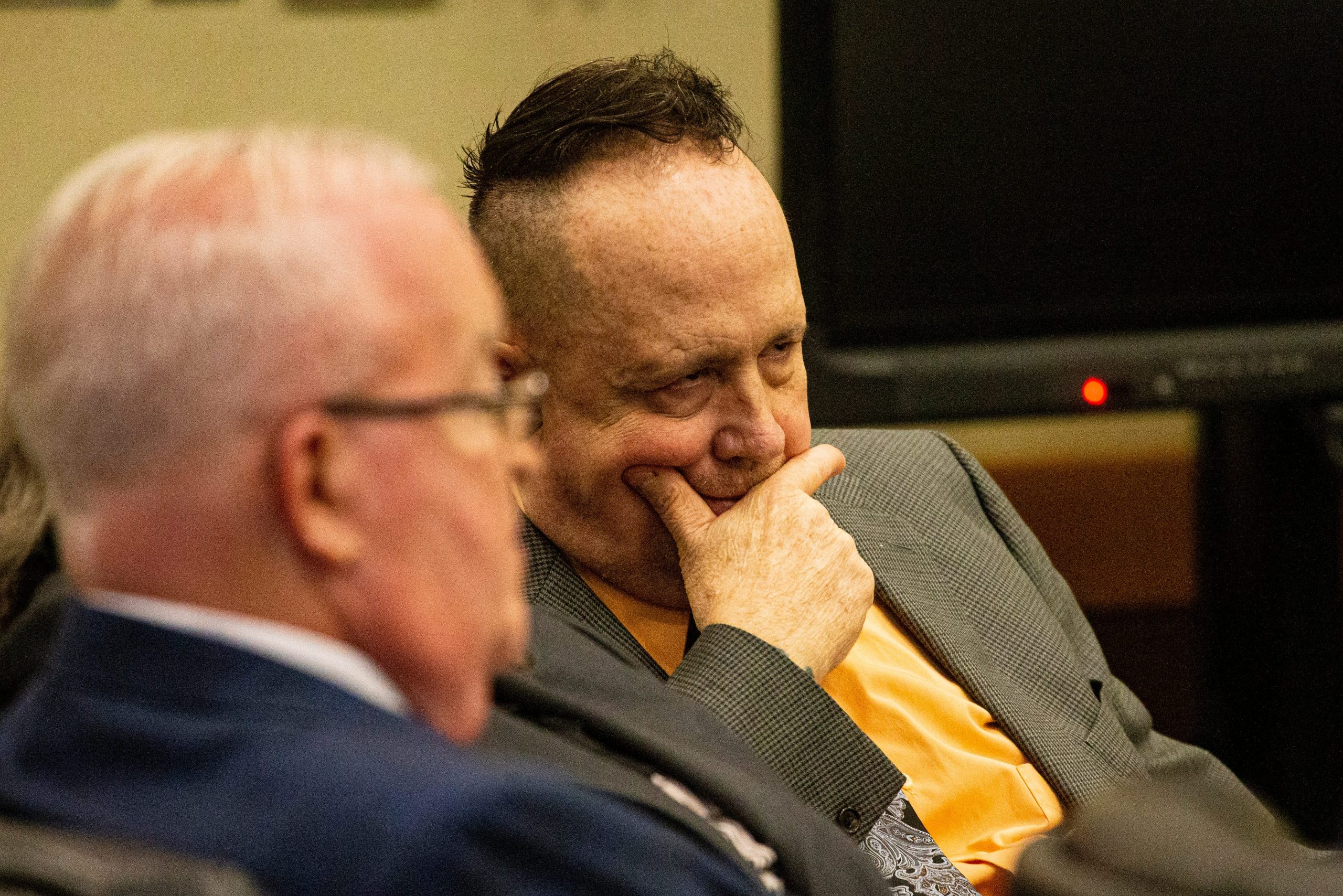In the annals of true crime, few cases are as chilling as the double homicide of Robin Cornell and Lisa Story. This tragic event shook Cape Coral, Florida, to its core in 1990. The brutal murders remained unsolved for decades until DNA evidence linked Joseph Zieler to the crime scene.
Joseph Zieler, a name that might not have been familiar to many before his arrest, now stands convicted and sentenced to death for these heinous acts. His capture brought a semblance of closure to a community haunted by the loss of two innocent lives. But who exactly is Joseph Zieler, and what led him down this dark path?
The Case Overview
The double homicide of Robin Cornell and Lisa Story shocked Cape Coral, Florida, in 1990. Decades later, DNA evidence identified Joseph Zieler as the perpetrator.
Background of the Crime
On May 10, 1990, Robin Cornell (11) and Lisa Story (32) were found murdered in their shared apartment. Both victims showed signs of suffocation and sexual assault. The crime scene revealed no immediate suspects despite extensive investigations by local authorities.
Key Events Leading to Arrest
In 2016, Joseph Zieler was arrested for an unrelated domestic violence charge. His DNA sample matched evidence collected at the Cornell-Story crime scene. This breakthrough led to his indictment for the murders. Subsequent trials confirmed his guilt beyond a reasonable doubt, resulting in a death sentence for Zieler.
Who Is Joseph Zieler?
Joseph Zieler, convicted for the 1990 double homicide of Robin Cornell and Lisa Story, is a name now synonymous with one of Cape Coral’s most notorious crimes.
Early Life and Background
Born in 1962, Joseph Zieler grew up in Florida. Details about his early life remain sparse. He lived an unremarkable life before his criminal activities came to light. His background did not initially suggest he would commit such heinous acts.
Criminal Record Before the Incident
Before being linked to the double homicide, Zieler’s criminal record included minor offenses. He faced charges related to theft and domestic violence but had no convictions for violent crimes like murder or sexual assault until DNA evidence connected him to the 1990 case.
Victims of the Tragedy
Robin Cornell and Lisa Story were the innocent victims in a tragic double homicide that shocked Cape Coral, Florida, in 1990.
Who Was Robin Cornell?
Robin Cornell was an 11-year-old girl living with her mother Jan Cornell. She attended Pelican Elementary School and was known for her bright personality. Robin enjoyed playing with friends and had a close relationship with her mother. On May 10, 1990, she stayed home while her mother spent the night at a friend’s house.
Who Was Lisa Story?
Lisa Story was a 32-year-old woman who recently moved to Cape Coral from Maryland. She worked as a nanny for Jan Cornell’s employer and temporarily lived with the Cornells. Lisa had aspirations of building a new life in Florida. On the night of May 10, she stayed at the Cornells’ residence to look after Robin while Jan was away.
The brutal murders of Robin and Lisa left an indelible mark on their families and community, highlighting the profound loss experienced by those who knew them.
The Legal Process
The legal process in the case of Joseph Zieler involved meticulous investigation and rigorous court proceedings. Authorities ensured justice for Robin Cornell and Lisa Story through a comprehensive trial.
The Trial
Joseph Zieler’s trial began with jury selection, followed by opening statements from both prosecution and defense. Prosecutors presented their case first, detailing the events leading to the murders. They emphasized Zieler’s criminal history and his presence in Cape Coral during the time of the crime. Defense attorneys attempted to cast doubt on the DNA evidence, arguing potential contamination or mishandling.
Witnesses included forensic experts who explained DNA analysis procedures, law enforcement officers who recounted investigative steps, and family members who provided emotional testimonies about Robin and Lisa’s lives. After closing arguments, jurors deliberated before reaching a verdict.
Evidence Presented
Key evidence presented at trial included DNA samples collected from the crime scene that matched Joseph Zieler’s genetic profile. Forensic analysts testified about how these samples were obtained and processed using advanced techniques available at the time. Additional evidence comprised fingerprints found at Robin Cornell’s home that linked directly to Zieler.
Prosecutors also introduced circumstantial evidence such as Zieler’s inconsistent alibis during police interviews and his known criminal behavior patterns consistent with those observed in this double homicide case. This combination of direct forensic proof and supporting circumstantial details formed a compelling argument for conviction.
| Type of Evidence | Description |
|---|---|
| DNA Samples | Matched Joseph Zieler’s genetic profile |
| Fingerprints | Found at Robin Cornell’s home |
| Witness Testimonies | Included forensic experts, law enforcement officers, family members |
| Circumstantial Evidence | Inconsistent alibis, criminal behavior patterns |
These elements collectively led to Joseph Zieler’s conviction for the murders of Robin Cornell and Lisa Story.
Sentencing and Reactions
Joseph Zieler received a death sentence for the 1990 murders of Robin Cornell and Lisa Story. The sentencing phase focused on the severity of his crimes and their impact on the victims’ families.
The Death Sentence Explained
The jury recommended the death penalty after deliberating on aggravating factors, including the brutal nature of the crime and Zieler’s lack of remorse. The judge upheld this recommendation, citing overwhelming evidence such as DNA links and Zieler’s criminal history. Florida law mandates that capital punishment cases undergo automatic appeals to ensure due process.
Public and Family Reactions
The families of Robin Cornell and Lisa Story expressed relief at the verdict, seeing it as justice served after decades of uncertainty. Community members echoed these sentiments, feeling a sense of closure. Advocacy groups against capital punishment voiced concerns about ethical implications but acknowledged the legal system’s role in delivering justice in heinous crimes like this one.
Conclusion
Joseph Zieler’s conviction and death sentence for the brutal 1990 murders of Robin Cornell and Lisa Story bring a sense of justice to their families and the Cape Coral community. The case, solved through DNA evidence, underscores the importance of forensic science in solving cold cases. While advocacy groups continue to debate the ethics of capital punishment, the legal system’s role in addressing such heinous crimes remains crucial. For many, this verdict represents not just an end but a long-awaited resolution that honors Robin and Lisa’s memory.

